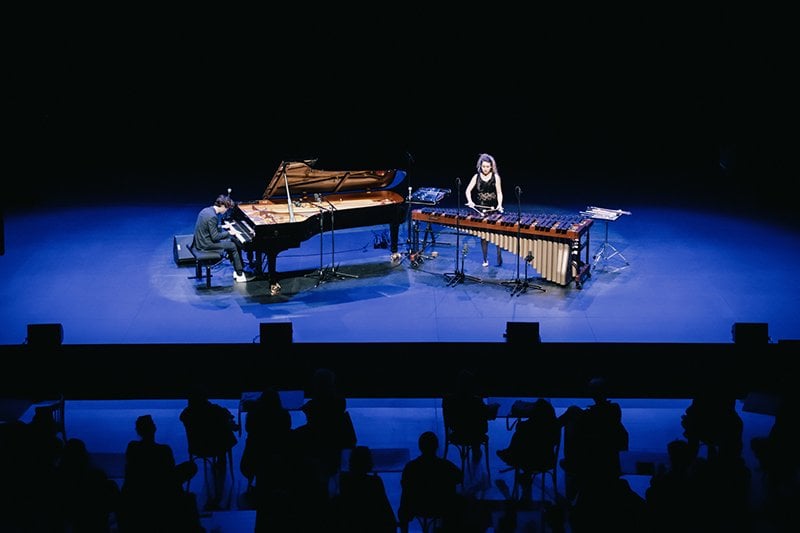Foundations committed to creativity, access and sharing
Whether it’s helping artists, lending a hand with big productions and restoration projects, making it easier to find venues or create a connection with the public – culture is one of philanthropy’s biggest causes! We take a look at three foundations who have adapted their outlook to support culture.
Museums and theaters closed, festivals cancelled – the culture sector was hard hit by the Covid crisis. Living in lockdown, artists and companies worried that not only would their projects be paralyzed, but they would also see funding from donors rerouted towards causes considered more urgent. But while the crisis put their livelihoods at risk, it also brought to light just how important culture is in our lives. With theaters and cinemas reopening, philanthropy is ready to help, now more than ever.
Never let go
“During this particularly difficult period, there was never a question of ‘letting go’ of the companies and artists that we support. On the contrary, we were there to assist them with their adaptation and reinvention projects,” explains Jean-Jacques Goron, executive director of Fondation BNP Paribas. The foundation commits a total 1.2 million euros per year to culture, focusing on three domains: modern dance, jazz and contemporary circus. Their commitment: to support experimentation and encourage new creative forms and artistic risk-taking. “It goes without saying, this means a long-term commitment,” notes the executive director. “For example, we have supported the Maison de la Danse (House of Dance) for 34 years. We usually assist creators for ten or so years, the time it takes to develop new artistic projects.” This mentoring process goes beyond simple financial support. The foundation believes in building bridges between the world of banking and artists, for example, having bank employees participate in certain choreographies, meeting with their clients, or having local and international branches get involved in festivals. At the height of the crisis, the foundation not only maintained its commitments, but also mobilized supplemental aid totaling 310,000 euros. “So that artists and collectives could continue to work in two directions,” says Jean-Jacques Goron. “On the one hand, they could develop remote projects, rethinking formats for the small screen.” Such as jazz pianist Dan Tepfer, who gave a concert from his apartment every Monday for 54 weeks! “And on the other hand, preparing works that would be performed once lockdown was lifted. This period served as a real laboratory. Some transformations accelerated, the use of digital tools, of course, but also the awareness that modes of production and management impact the climate and the importance of offering access to audiences who have little contact with culture. In all these explorations, we stand by the side of artists.”
 With Fondation BNP Paribas’s support, Variations de Nantes was able to hold its March 2021 festival, entirely online through streaming.
With Fondation BNP Paribas’s support, Variations de Nantes was able to hold its March 2021 festival, entirely online through streaming.
Comédie Française: supporting the digital transformation
The same could be said of the Fondation pour la Comédie-Française, which brings together donors – businesses or individuals who want to help promote “The Home of Molière.” For the company, despite lockdown, there was never a question of giving up on its primary mission: sharing theatrical creation and heritage with the public. There was a possibility that the actors and some of the technical team could continue to work to prepare the reopening and offer online productions. Once again, lockdown made it necessary to invest heavily in digital equipment and to mobilize additional means to create high-quality web TV. That’s how the institution was able to offer the public a series of events, such as a daily reading from Memories of Things Past (up to 100,000 viewers tuned into some of the readings!), or the weekly “Table Theater,” which allowed hundreds of thousands of theater lovers to learn about the rehearsal and interpretive process in over 20 works. “The foundation’s financial support was crucial to developing this new management mode, and we mobilized our network of donors,” explains Marie-Claire Janailhac, the foundation’s president. “The experience allowed us to reach new audiences: people living far from Paris, even overseas, retirement home residents, people in prison…how to maintain and develop this connection? That’s what we are currently exploring.”
When culture also means solidarity and ecology
Far from the stage lights, other foundations work to preserve and restore architectural heritage. Such as Fondation Malatier-Jacquet, which takes action on multiple fronts: cultural, social and environmental. This can be seen in its restoration projects at the Chambord and Versailles castles. In the first case, the project aims to save the park’s outer wall from ruin by training and involving people who are unemployed. And to create a new kitchen garden entirely according to sustainable farming principles, and in the process, train new permaculture professionals and create awareness among visitors. In the second case, at Versailles, the challenge is to restore the lake at the Queen’s Hamlet while maintaining the balance in the lake’s ecosystem. During the health crisis, these restoration projects were able to continue, and the foundation also maintained its commitment to young students through grants for study abroad. Once again, culture and solidarity move forward together.
POUR ALLER PLUS LOIN

